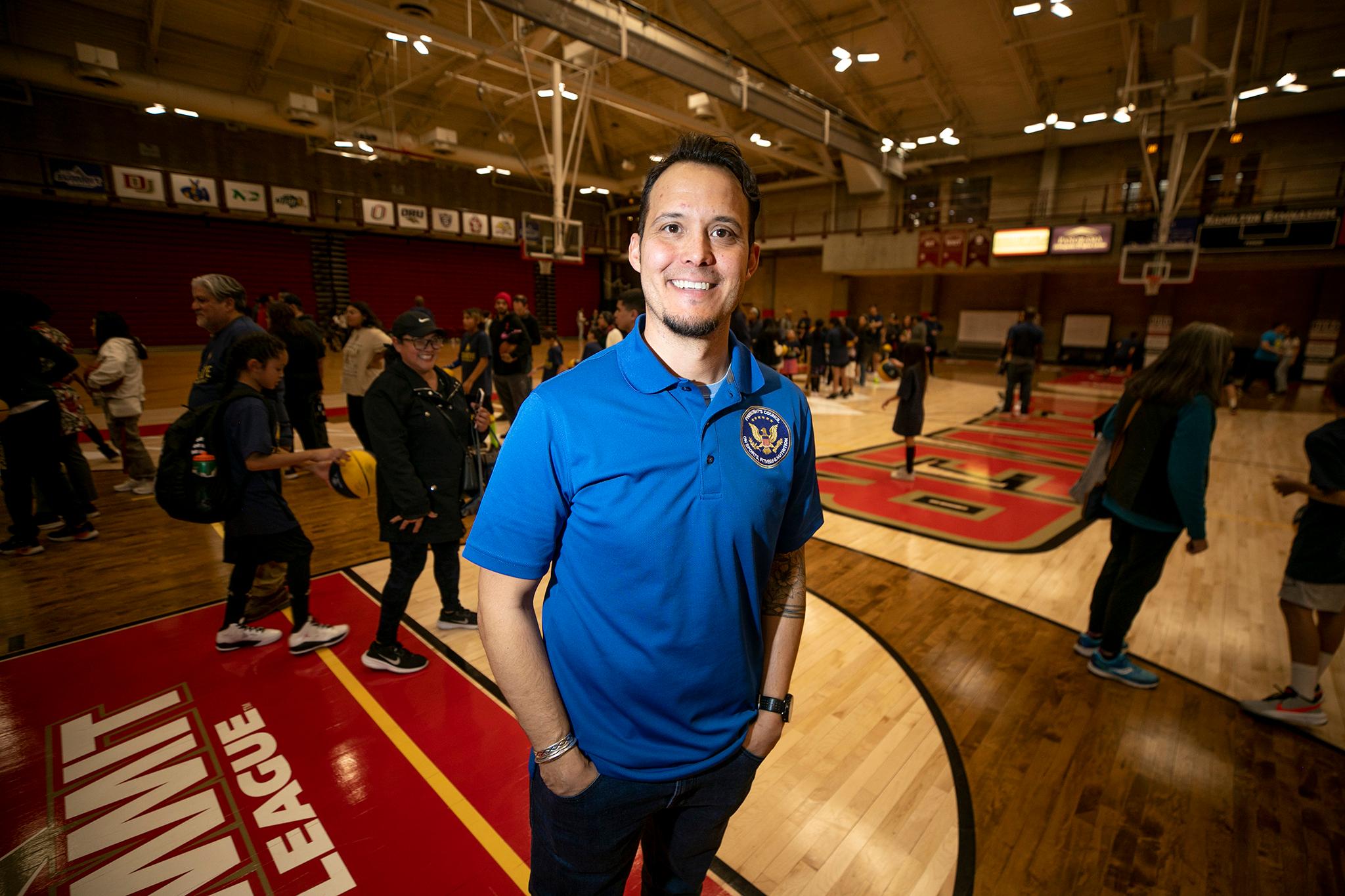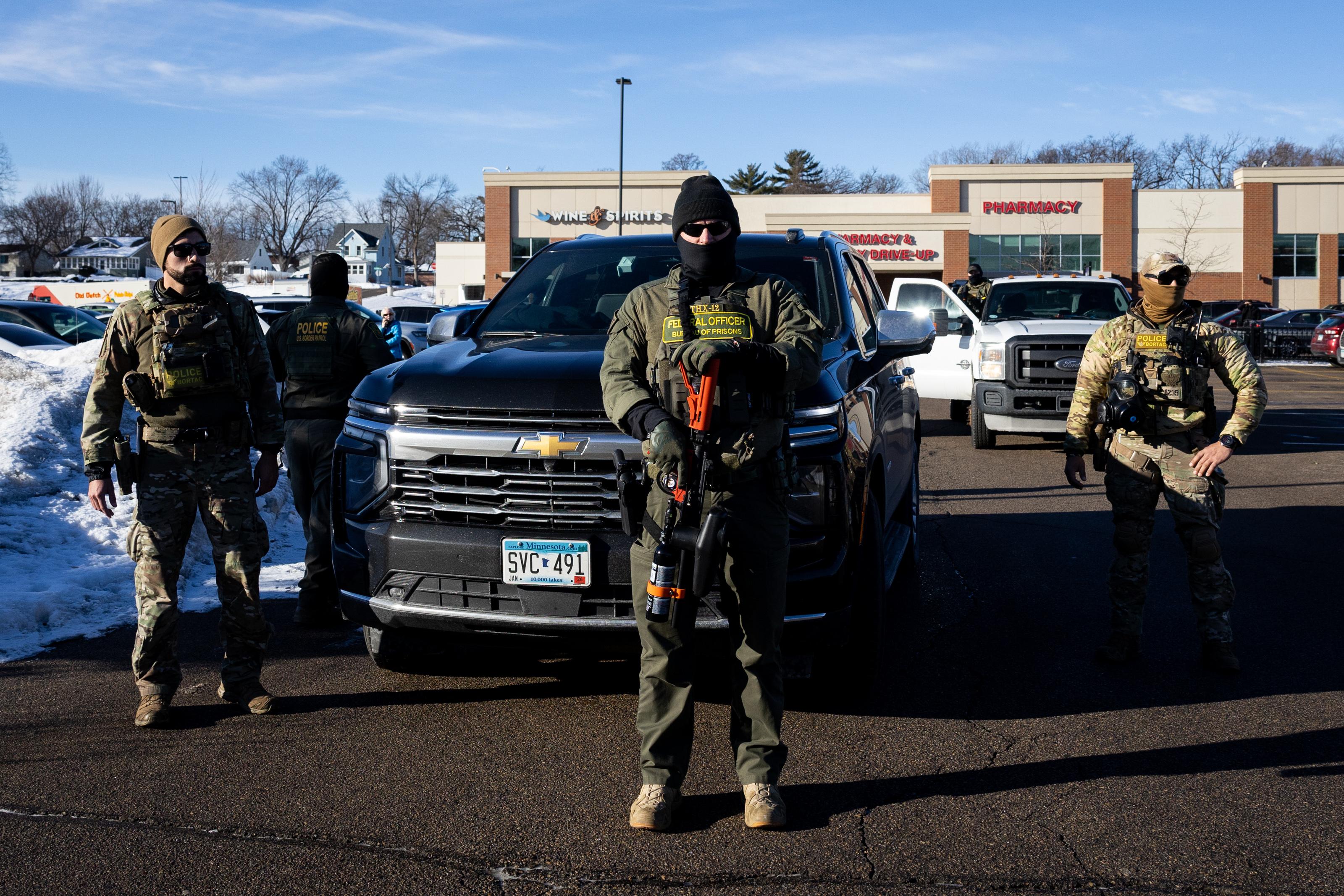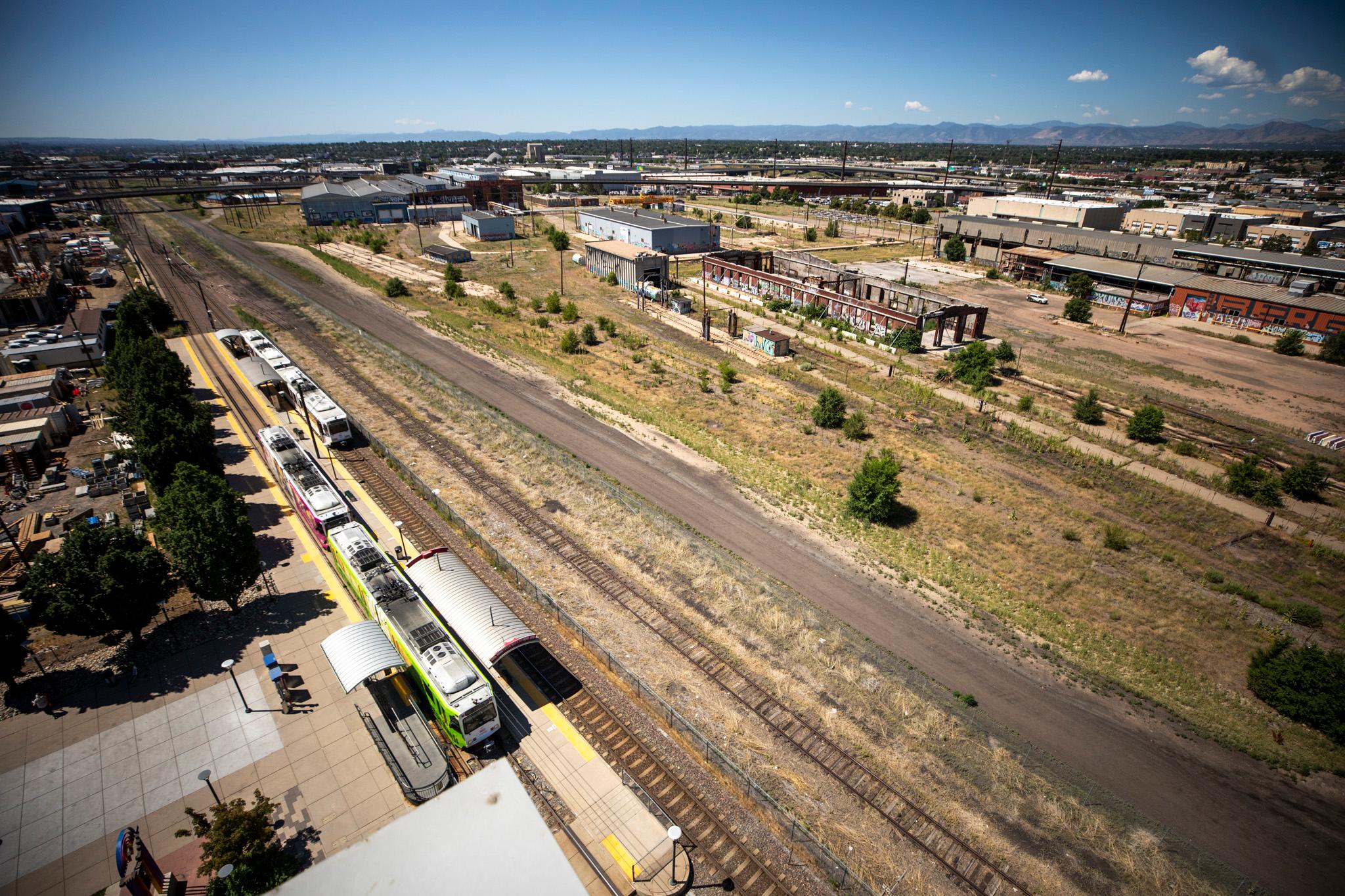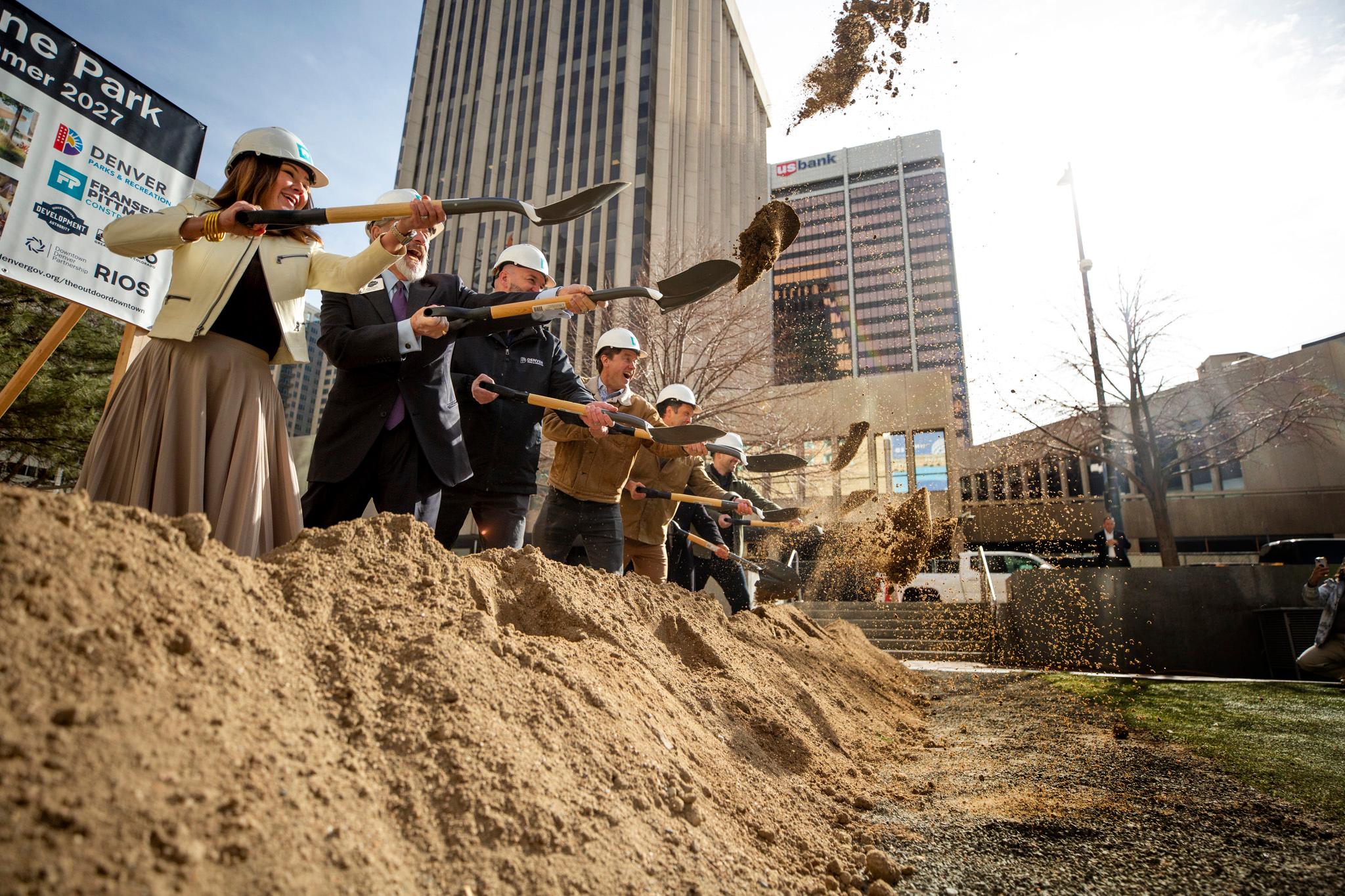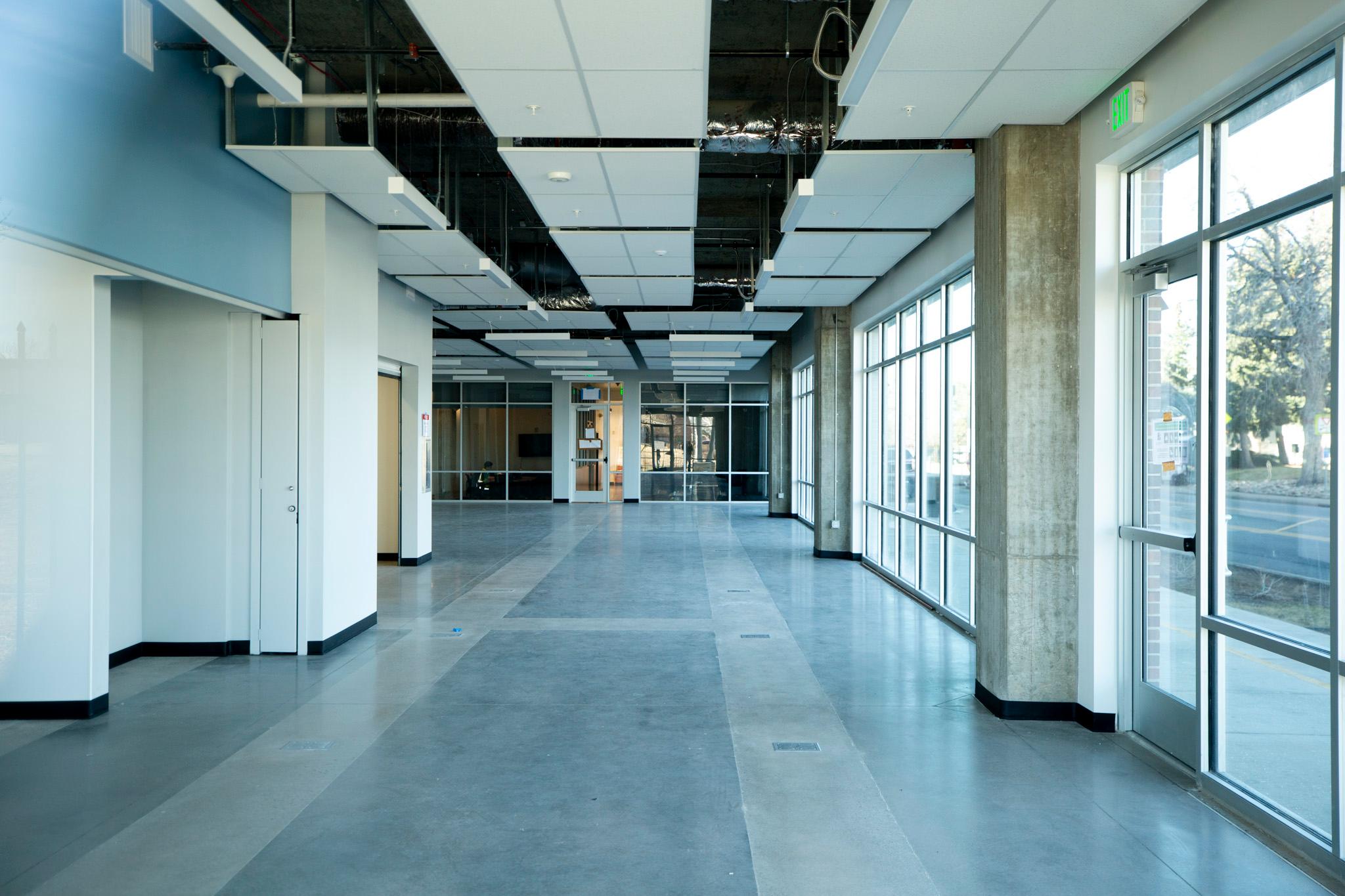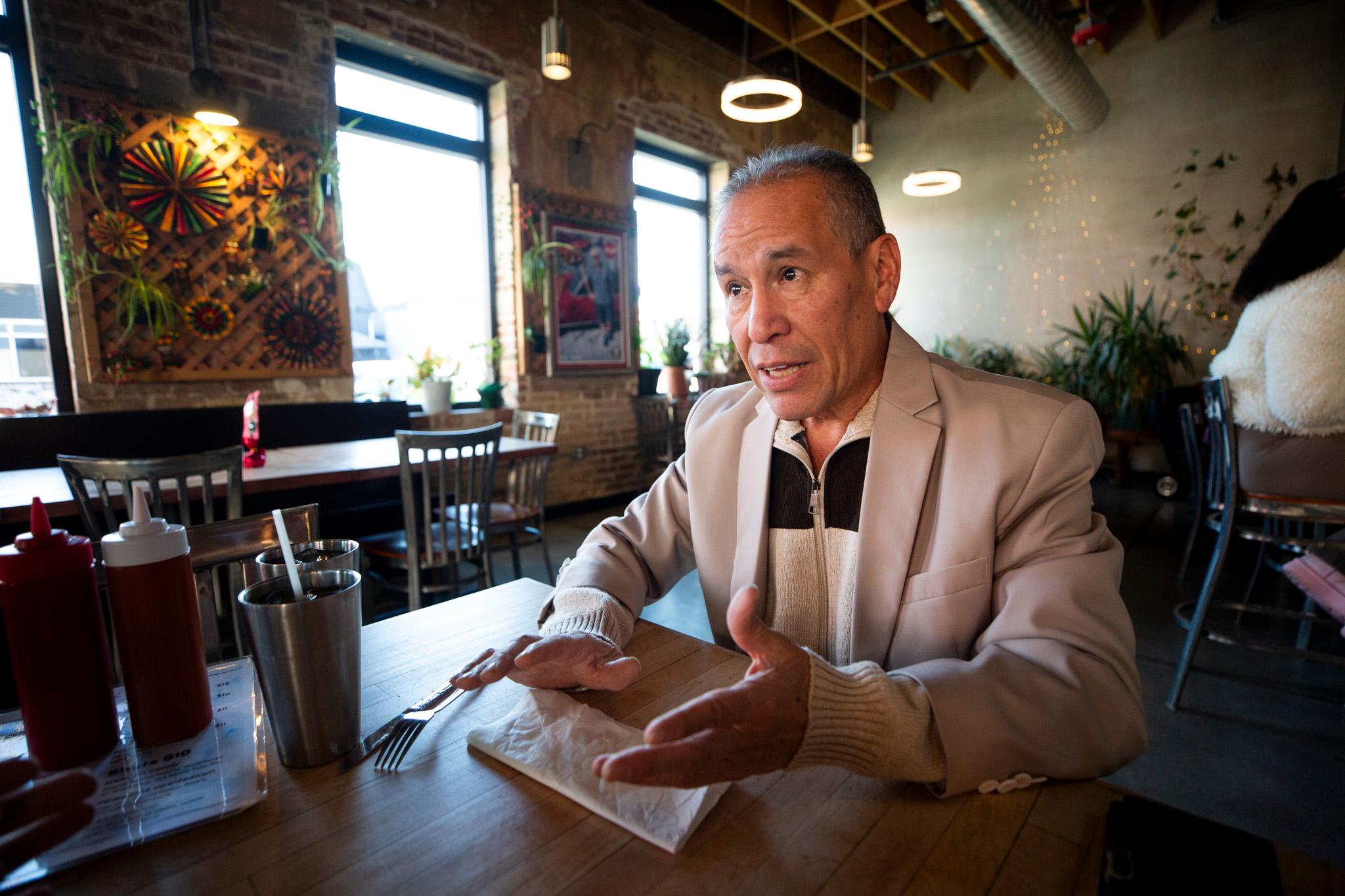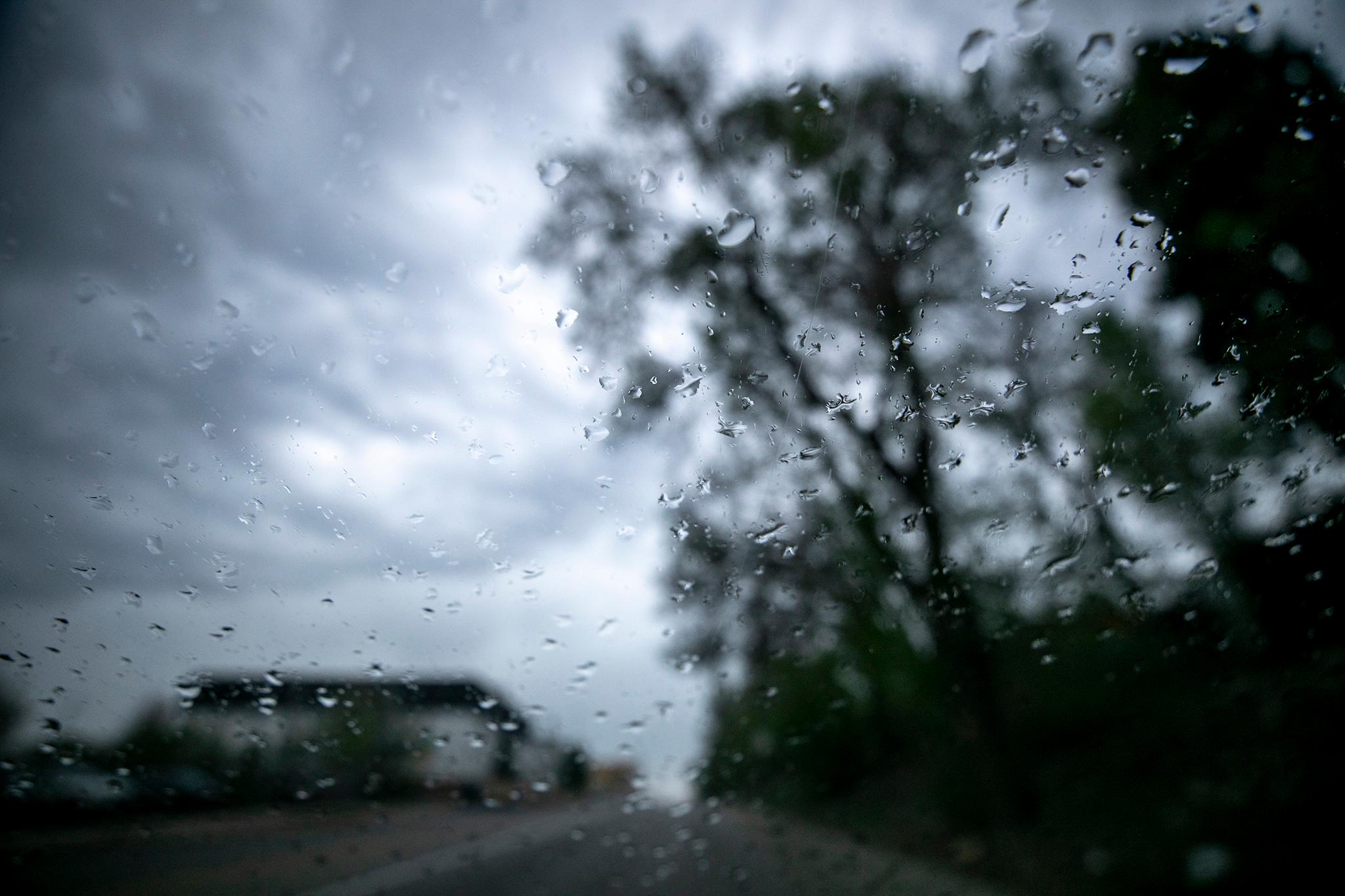Basketballs bounced up and down on the crimson and gold courts inside of the University of Denver's Ritchie Center as kids practiced dribbling and ball-handling drills.
Ben Jacobs, co-founder of the locally beloved eatery Tocabe: An American Indian Eatery, looked on as the group of mostly Indigenous youth built up a sweat on a Sunday in January.
The cobalt blue polo shirt he wore donned the shield for the President's Council on Sports, Fitness & Nutrition, an almost 70-year-old effort aimed at promoting fitness and healthy eating.
Jacobs, a member of the Osage Nation of Oklahoma, was appointed to serve on the council in March 2023. Serving on it provides another avenue for trying to meet the nutritional and fitness needs of Indigenous communities through community partnerships, something he's worked on for years through Tocabe, which he co-founded in 2008.
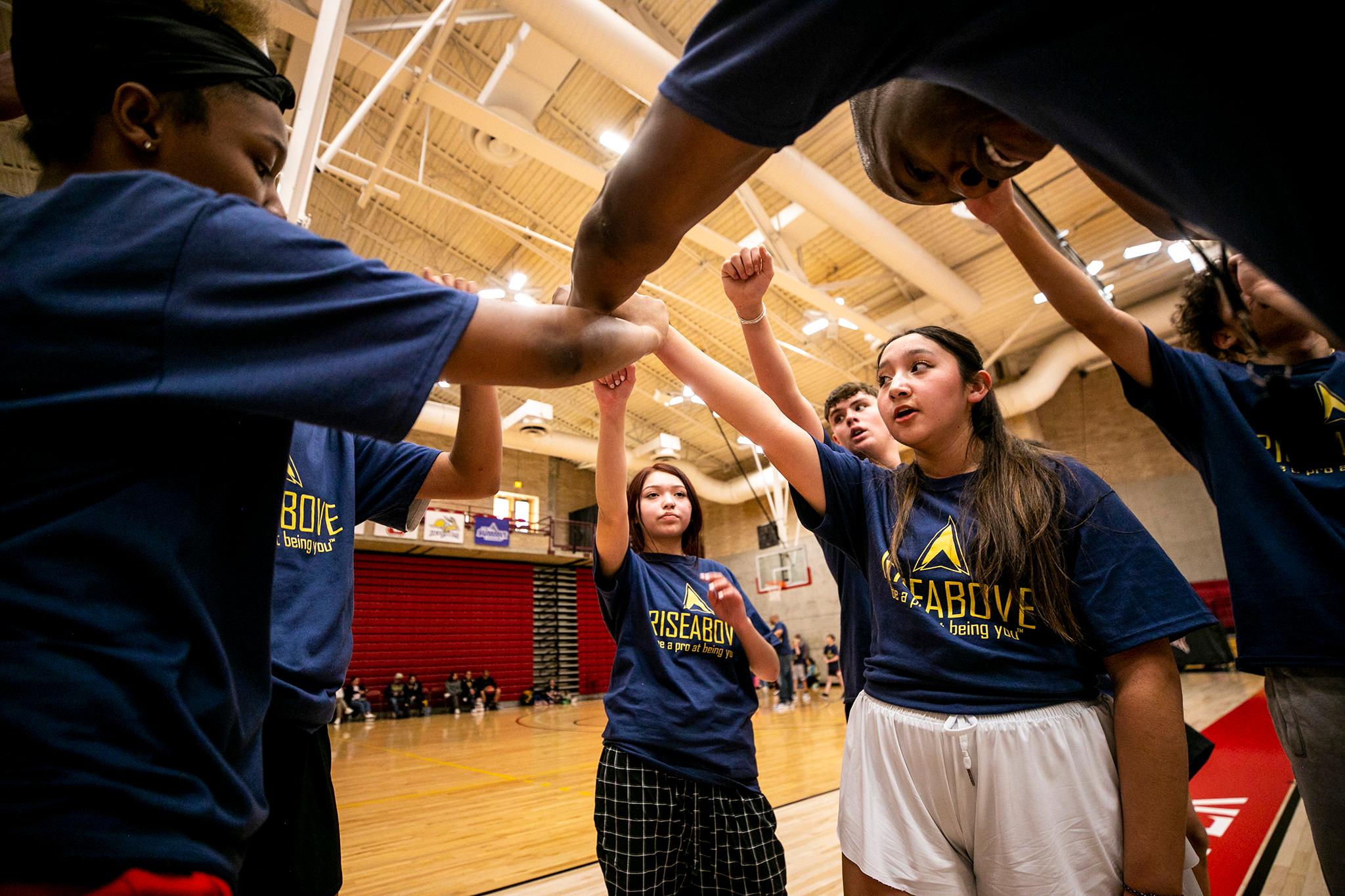
Indigenous people in the U.S. face serious health issues and can lack access to necessary care and support. Over 50 percent of Indigenous adults over 35 have type 2 diabetes. Some of the highest suicide death rates for adolescents are among American Indian and Alaska Native people.
"This is one reason why I'm on the President's Council," Jacobs said. "I'm obviously aligned on the nutrition side because I do work in food but the approach to life for Native people is that it is all one in the same between taking care of our bodies: physically, mentally and spiritually. It's all tied together."
Jacobs works on the presidential council alongside notable names including Golden State Warriors Stephen Curry and his restaurateur wife, Ayesha Curry; former MLB baseball player Ryan Howard; former WNBA player Tamika Catchings; Olympians Chloe Kim, Elana Meyers Taylor and Chaunté Lowe; and restaurateur and award-winning chef, José Andrés. Jacobs' term ends next year.
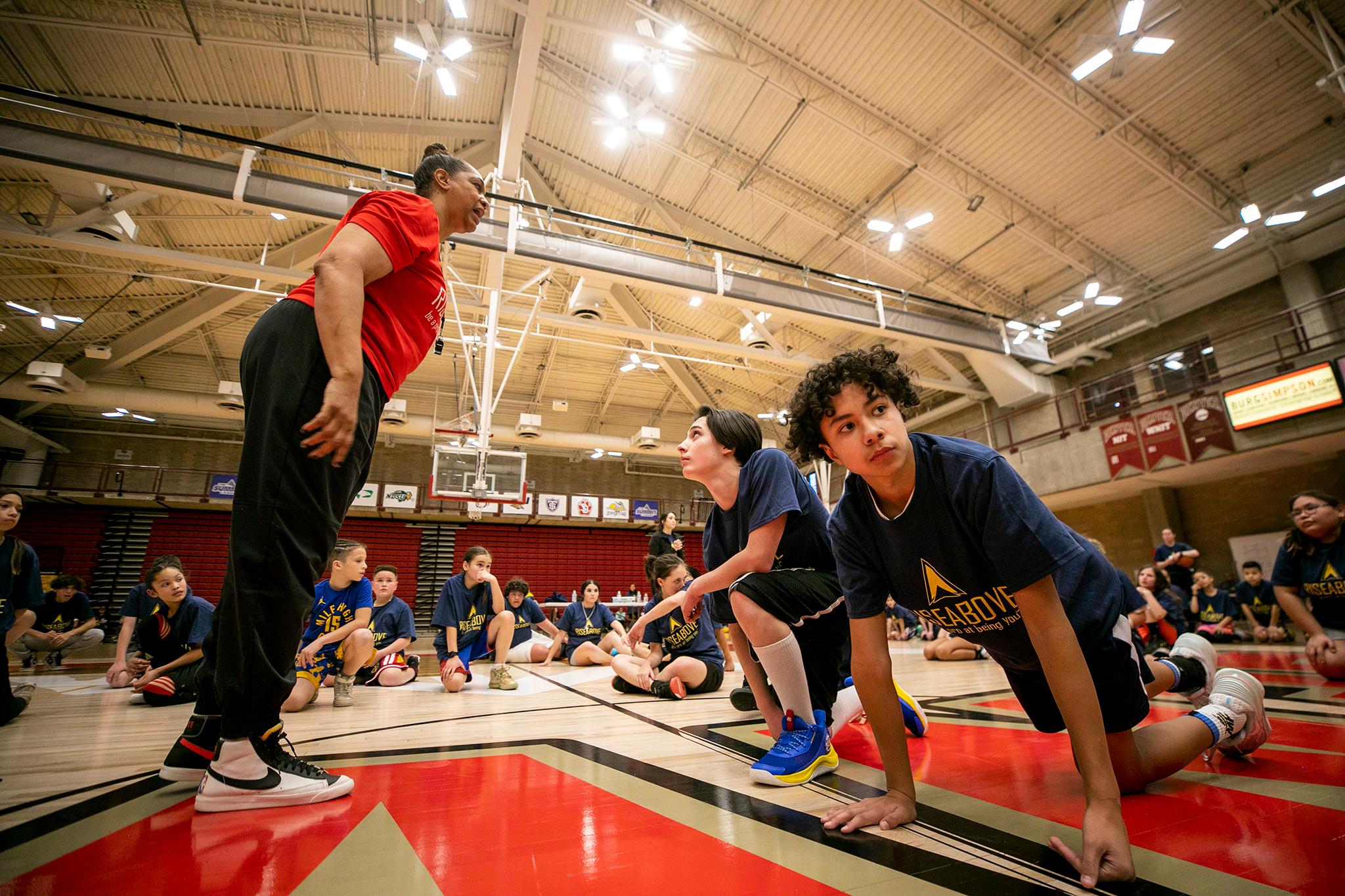
The one-day basketball clinic in late January came together through a partnership between Jacobs and the Native-led, Seattle-based nonprofit Rise Above. More than 100 school-aged kids attended.
Longmont high school senior JaRon Fowler of the Navajo Nation attended the clinic with his younger sister.
"Being a Native American hooper, there's not a lot of us out there," Fowler said. "It is a way to keep our people strong and healthy, like the warriors a long time ago would help our people and keep being fit."
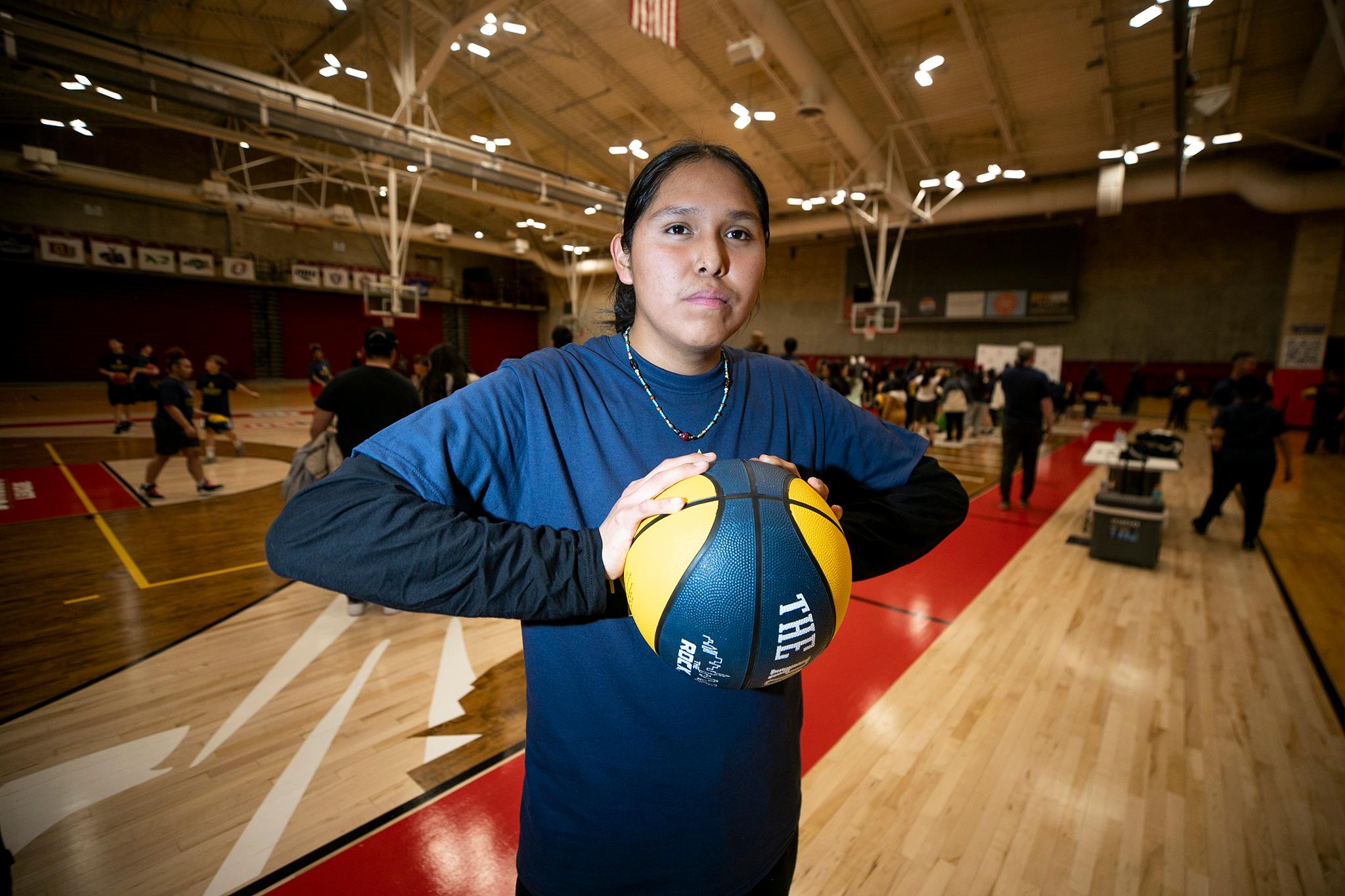
Friends and family sat against the outer walls of the courts and watched as students learned to dribble the basketball under pressure in a team, relay-style race on opposite ends of the court.
"The [coach] told me I could do it," said Amaya Buirl, a freshman from Colorado Springs. "And it felt good."
Belting out instructions and pushing young ball-handlers to finish strong, 1996 Olympic Gold Medal-winner Carla McGhee stood at half-court.
"If we run it back," McGhee said, challenging the round-one winning team. "Y'all can do it again?"
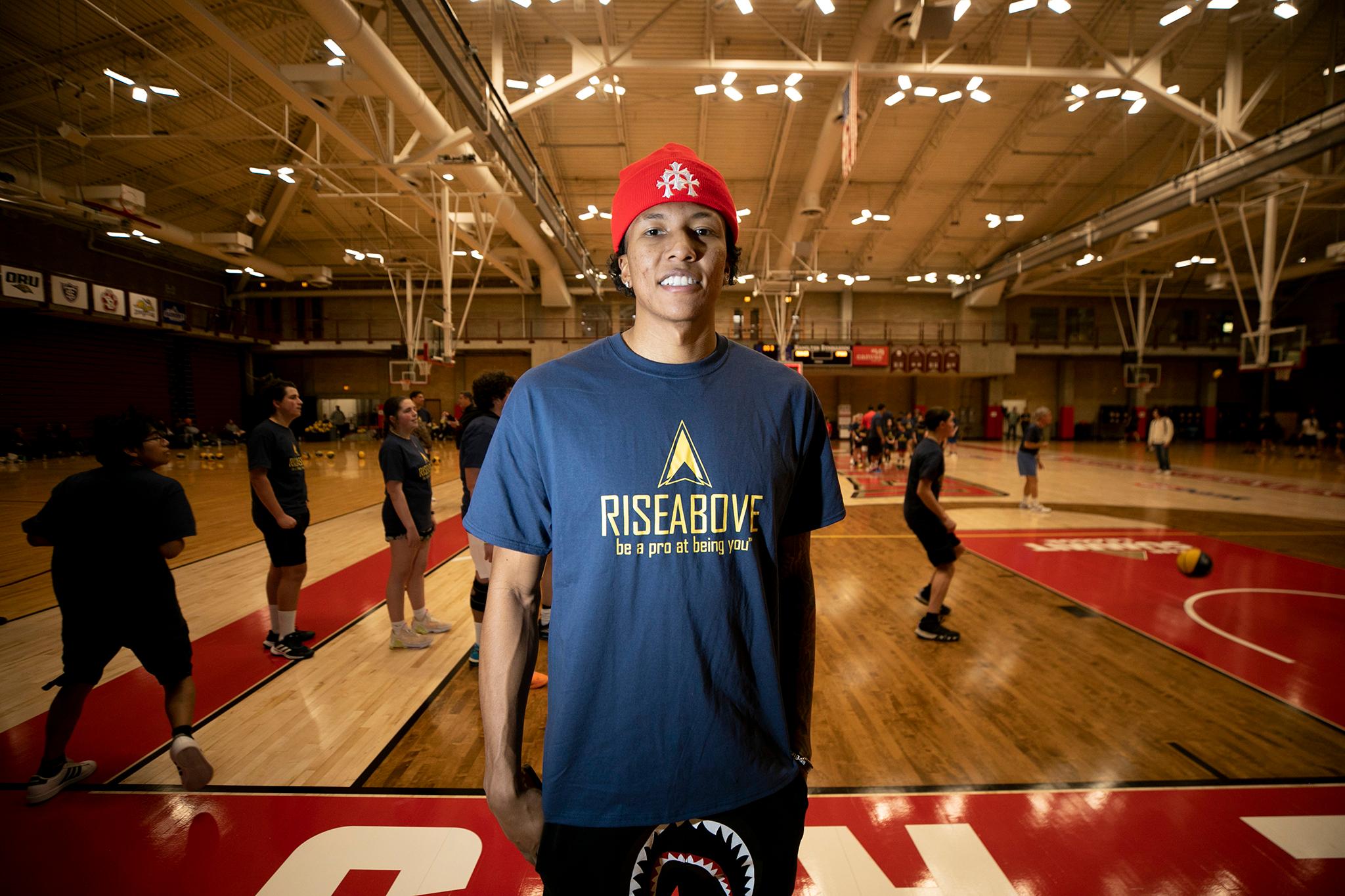
Others in attendance included Hall of Fame NBA coach George Karl, formerly of the Denver Nuggets, former professional basketball player Lakota Beatty, Milwaukee Bucks Assistant Coach Vin Baker and current Milwaukee Bucks player MarJon Beauchamps.
"I used to be in their shoes when I was that age," said Beauchamps, a Mission and Luiseno Tribe member. "I think it's important for players to come back for stuff like this. I never thought there would be this many [Native American] kids in Denver ... it's pretty cool to see."
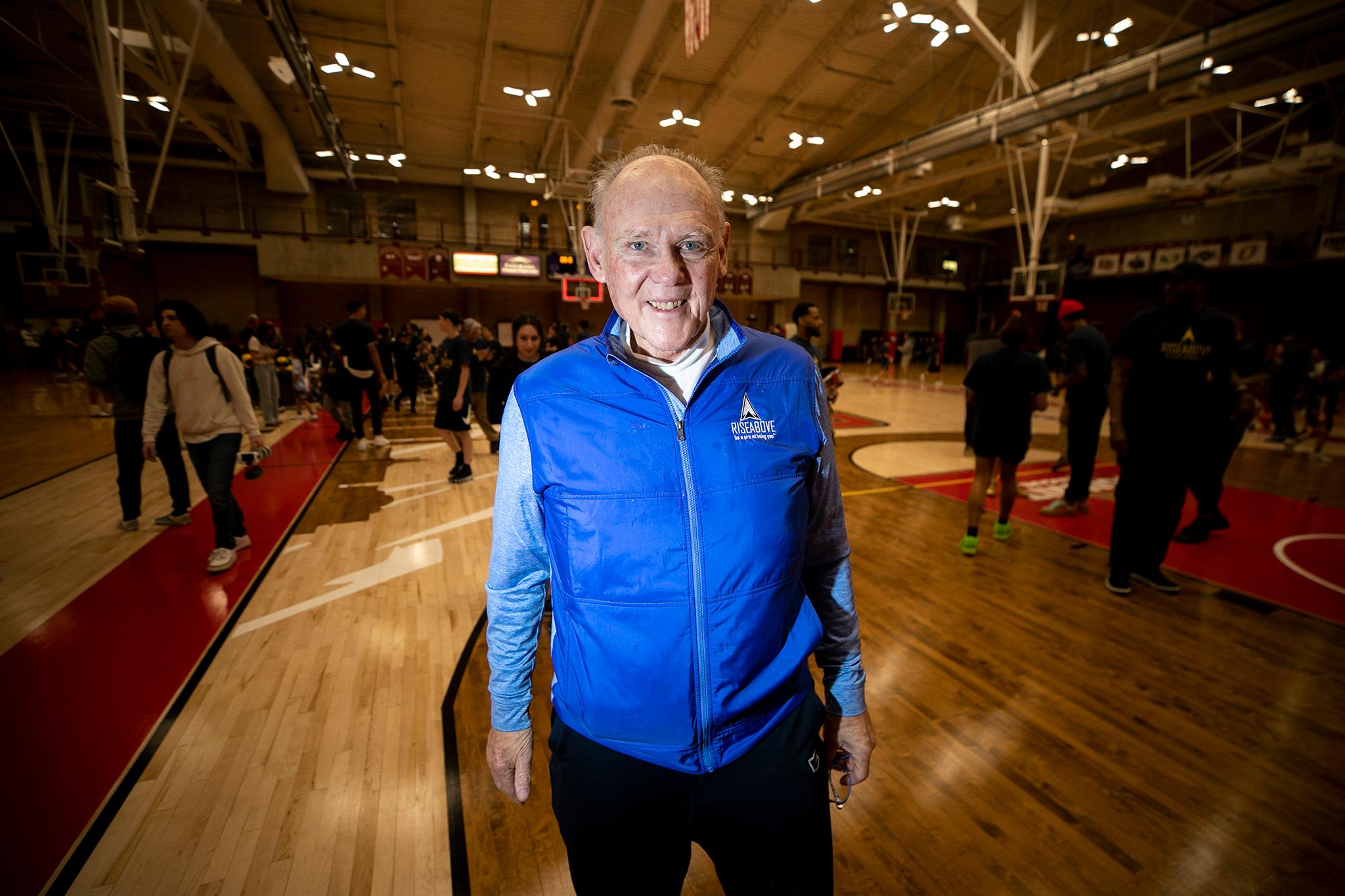
Karl, has been a Rise Above ambassador for many years, speaking and coaching at several of the nonprofit's youth clinics. Karl said that if even a handful of the clinic's participants fall in love with the game of basketball, they've done a good job.
"If 10 of them find a way out of where they are now because of the game, there'd be a celebration," Karl said.
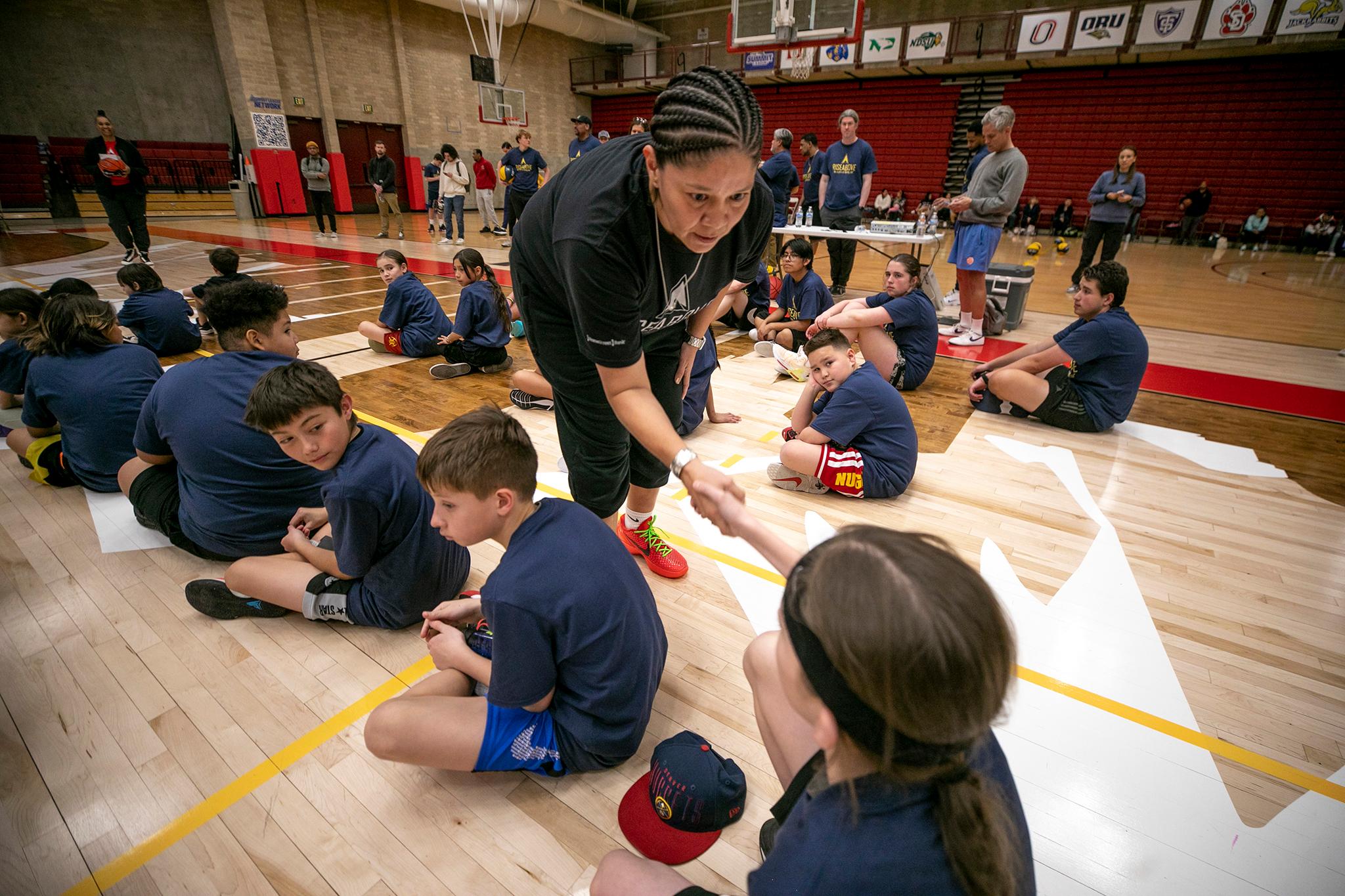
Jaci McCormack, Rise Above Co-Founder and CEO, said that creating this space for kids to exercise became possible in part to the support of Jacobs.
"It's about health and wellness but really it's just creating safe spaces for our kids to move their bodies," McCormack said. "Have some fun and create opportunities for them to reach out when they need support."
The nonprofit was honored with the Sports Equity and Inclusion Award by the Seattle Sports Commission earlier this month for their work engaging Native youth through the game of basketball.
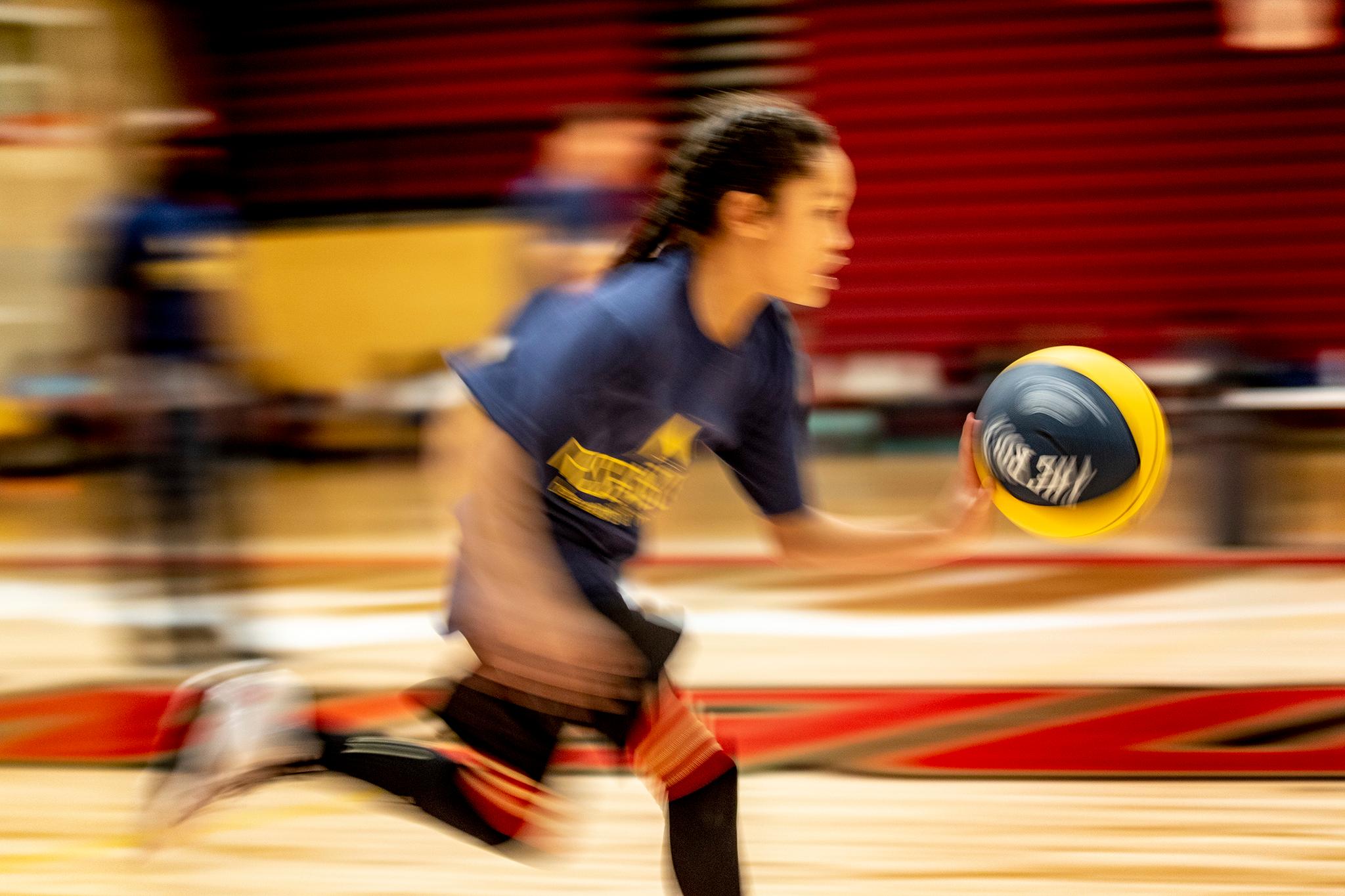
The clinic was one way for Jacobs to build on his work to holistically support Native communities, something he has been doing through Tocabe.
Jacobs and his partners have found ways to carry out their mission of supporting Indigenous communities.
"We're restaurateurs, but we never thought of it that way," Jacobs said. "We thought of ourselves as a community resource from the very get-go. Our vision and philosophy was making sure that we maintain, support, identify, embrace Native identity first."
Jacobs and Matt Chandra opened Tocabe in 2008 as the only American Indian-owned and operated restaurant in metro Denver. Then in 2021, the duo expanded into the Tocabe Indigenous Marketplace, a digital platform giving people access to Native and Indigenous ingredients.
The duo took that a step further in 2023 by announcing their Direct-to-Tribe Ready Meal program, a two-year commitment providing monthly meal deliveries to the Spirit Lake Tribe in North Dakota.
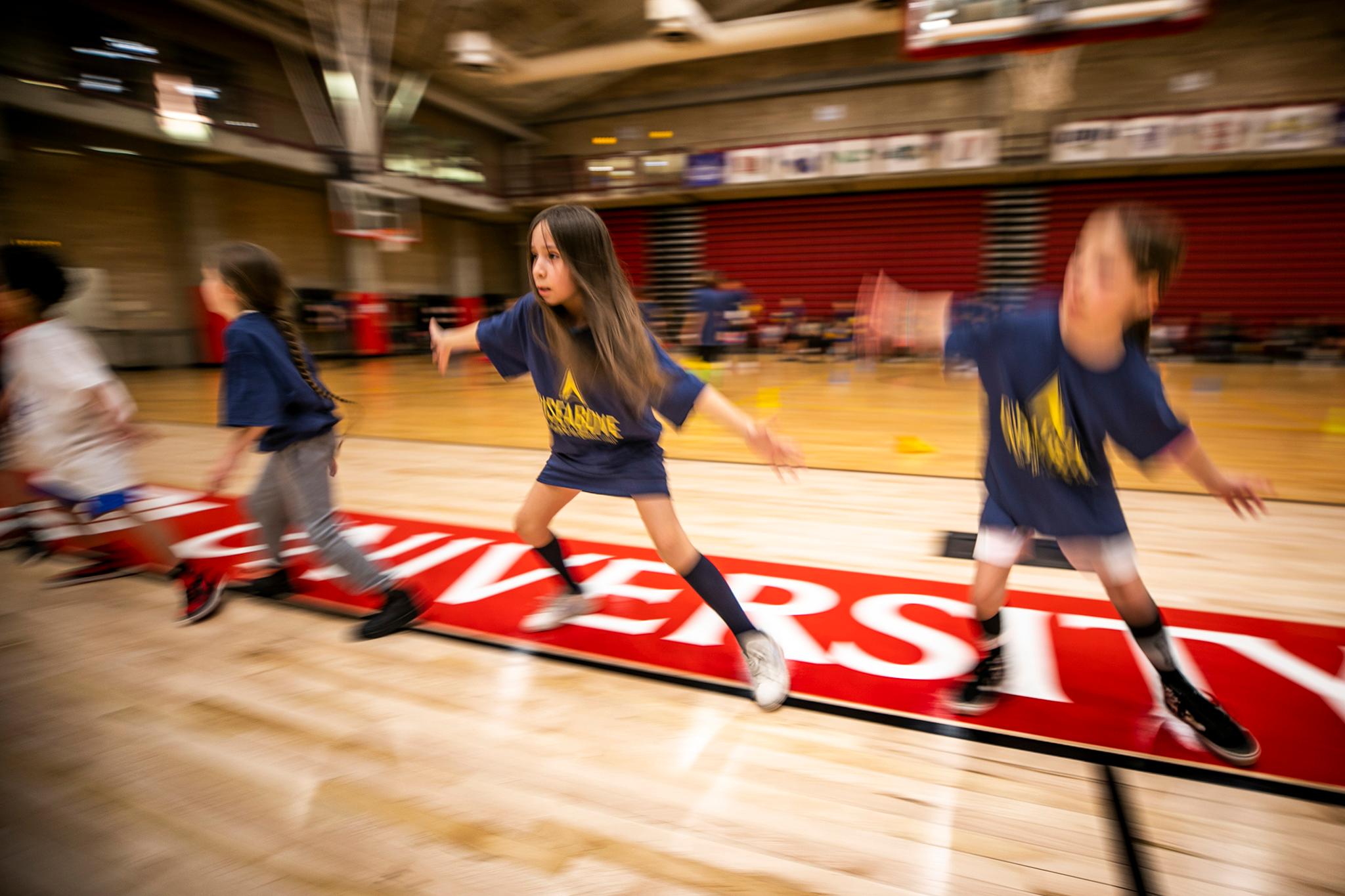
"We are feeding each other from the land right here," Jacobs said. "While yes we are a Native food company, we are a genuine American food system and my belief is that all of us, no matter what you look like, should be eating this way because this is the food that's original to here, but this is also the food of the land that we live on right now."
Aside from plans to commit another two-years to the Spirit Lake Tribe, Tocabe is now in partnership with the Denver Indian Center and the Denver Indian Health & Family Services to give out 10,000 meals locally through shared programming throughout the year.
"The thing that is different for us is that every meal we create, the vast majority of its ingredients are coming from a Native food producer," Jacobs said. "We are providing high-quality ingredients from wild rice to braised bison. It's 10,000 methodically developed meals specifically designed for not only nutrient impact but cultural relevancy."
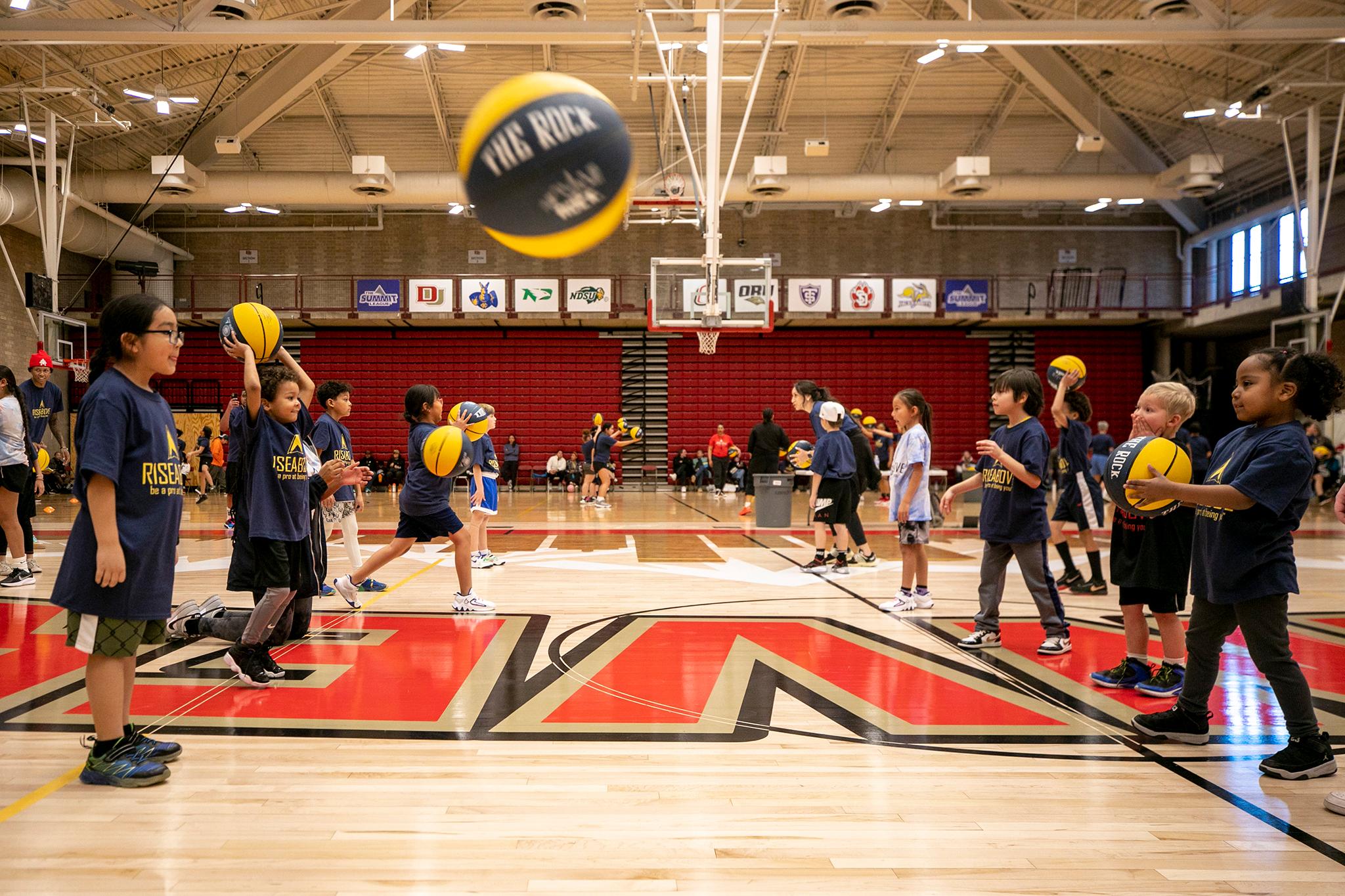
Students traveled from hundreds of miles away to attend the clinic and Jacobs and Co. hope there will be more opportunities to hoop with professionals.
"I'm really proud of our community here," Jacobs said. "Once the word spread we were getting calls from Pueblo, Colorado Springs, Fort Collins."
Spinning a yellow and navy blue basketball in the palm of his hands, Fowler said he was encouraged by a coach who instructed the young hooper to "shoot higher."
"He was saying like, you know going back to that old Native teaching, just think of it like an arrow," Fowler said. "I was having that motivation of thinking of it as an arrow, I shot it and made a couple buckets. That's one I'm proud of."
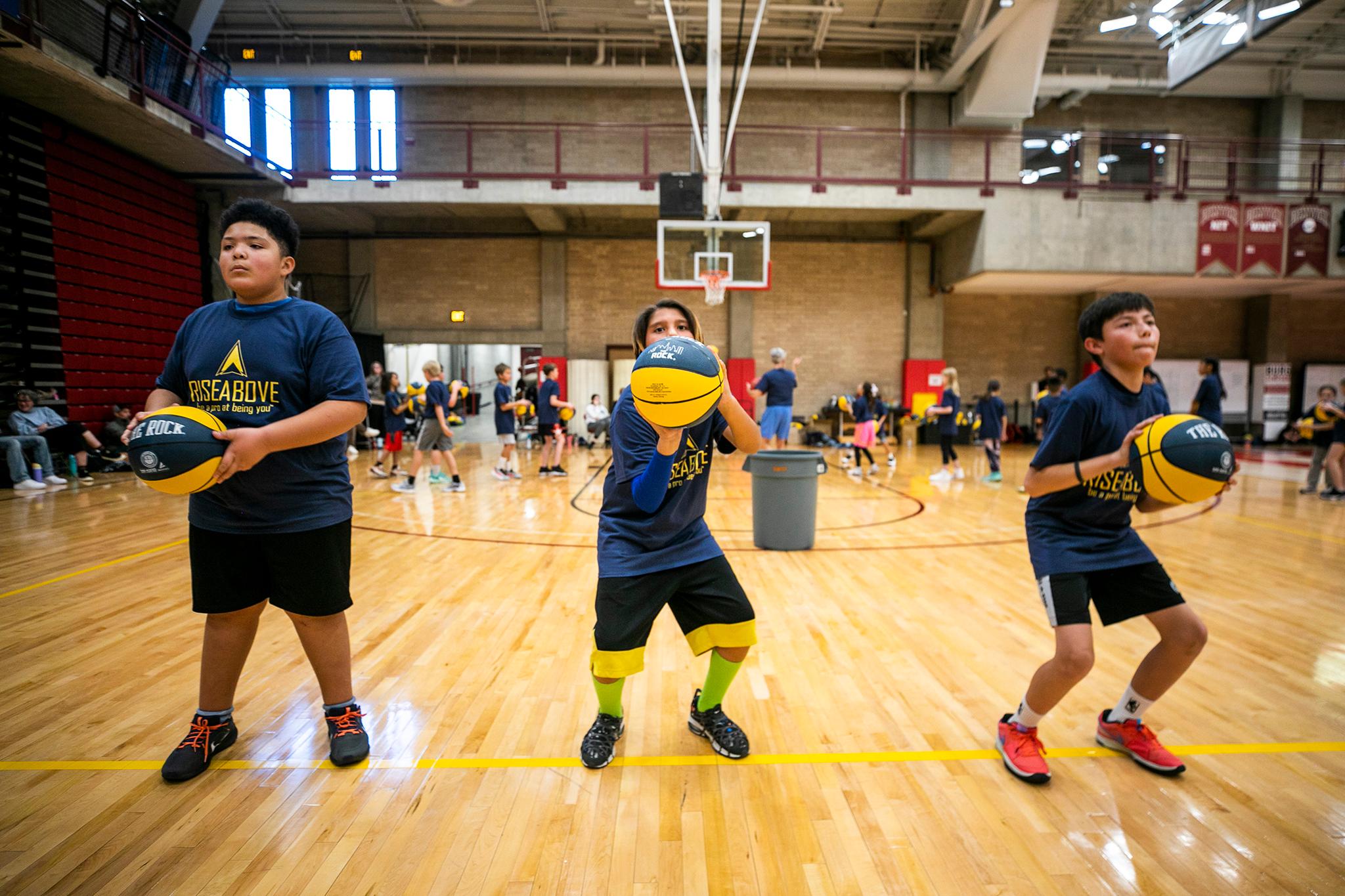
Rise Above organizers and Jacobs hope to host more clinics down the line.
Jacobs called back to a time when appointees to the President's Council and asked themselves why they were appointed. The roundtable of sports stars, cardiologists, chefs, CEOs of food banks and grocery chains reached a simple consensus: the country's shared future is based on health, fitness and nutrition.
"This is about basketball, but it's about more than basketball," Jacobs said in his closing speech to the group of students. "It's about our overall health. What this shows more than anything is that no matter what tribe, town or city you come from, we are a community."

